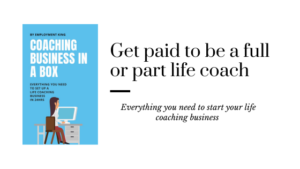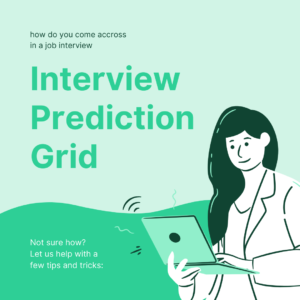How to answer HR (Human Resources) Assistant job interview questions.
HR assistant, sometimes known as a HR administrator, job roles are entry-level job roles. This means that the employer doesn’t expect the job applicant to possess a high number of years in the industry.
Instead, the interviewer is looking for potential, the right fit for the organisation.
This article will explain how to pass a human resource assistant job interview. We will provide a list of commonly asked human resource assistant job interview questions and answers.
What is a HR assistant job interview.
The HR assistant recruitment process often consists of a signal job interview, conducted by an HR professional or manager.
The recruitment panel will have been trained in interviewing process including unconscious bias, often adopting a structured job interview approach.
The interview will last around sixty minutes, with the interviewer asking around eight job interview questions.
As the position is an entry-level role, the employer will do their best to put each candidate at ease.
To put the applicant at ease, the interview panel will:
- Make small talk
- Explain the interview process
- Initially, ask open questions
Small Talk
To relax a nervous interviewee, interviewers will create small talk.
Small talk helps as it creates a conversation (the small talk isn’t part of the job interview itself), puts the applicant at ease, and helps communication during the job interview, as the candidate has been encouraged to speak.
Small talk questions include:
- Did you find the building ok?
- What do you think about the weather today?
- Do you want a tea, coffee, water?
The small talk section of the job interview, can be used to help shape an applicants interview identity, how the employer views the candidate: suitable or unsuitable.
As an example, if asked ‘did you find the building ok?’ an applicant can easily reply with: ‘Yes it was easy to find’ or can show preparation skills by replying with: ‘Yes, I’m an organized person, so I drove here a couple of days ago to ensure I would be on time’.
Another example, when asked about ‘What did you do over the weekend?’ The applicant could respond by talking about a sector-related book they were reading.
“Pre-interview communication effects the job interview outcome”
Chris Delaney Author of what is your interview identity
Even the level of communication confidence; the language used, the number of filler words, pace and speed, all effect the employers opinion of the applicant, prior to the job interview start.
HR Assistant Job Interview Questions and Answers.
Below is a list of commonly asked job interview questions, and an explanation of how to answer each question, for a Human Resource Assistant job interview.
Tell me about your experience and how it relates to a human resource assistant job role?
For an entry-level position, employers aren’t expecting a string answer for this opening interview question.
This, then, is a great opportunity to be viewed as hirable by preparing a high-scoring interview answer.
The answer should include:
- Relevant qualifications
- Past experiences relevant to the job role
- Skills and qualities
- The reason why you have applied for this role
“For the past X years, I have been working in (add job sector) where I have been (add relevant HR and administrational duties). Over this time I have built up a wealth of skills and qualities which include (add HR required skill/quality). I possess a (add qualification) and have applied for this role because (add reason: passion, interest, possess the skills)”
How would you provide administrative and organisational support for HR colleagues?
There are different ways to answer job interview questions. For higher-paid positions, where employers expect an applicant to possess industry experience, the interviewer will ask ‘behavioral’ job interview questions.
For lower-paid entry roles, the questions will be framed as ‘situational’ – ‘What would you do…’ and, ‘How would you…’
To answer a situational job interview question, applicants can so knowledge by:
- Sharing industry-related theories
- Well used sector models
- Give a step by step plan of what they would do in a given situation
“One of my key strengths is (add strength IE organisational skills). In work, I (add model IE the time management matrix model) This allows me to (explain model). To support HR colleagues on a day to day basis I would (add actions you would take IE offer my support, complete tasks on time, share my knowledge of excel, etc)
For the later part of the interview answer, the skills and duties, think about the job role. What skills are required for the common HR assistant duties?
- Communication
- Listening skills
- Accuracy
- Organisational
- Excel, Word and database knowledge
- Understanding HR legislation
- Fast typing skills
- Dictation and note taking
- Being professional
- Telephone skills
How could you support monthly payroll tasks?
When asked any job interview question, the interviewee should first ask themselves ‘what skill, experience, or quality is the employer looking for evidence for through this interview question?’
For technical skills and duties, job hunters must, prior to the job interview, research what will be expected of them once employed. For the above question, job applicants must understand what payroll is.
In fact, one of the three rules of a successful job interview outcome is ‘predicting the interview criteria’
As payroll consist of calculating employees’ salaries, calculating tax, and reporting spend to HMRC, the successful applicant will require ITC skills, excellent numeracy skills, and attention to detail.
The ‘How could you support..’ section of the interview question, indicates that the employer is checking the applicant’s level of knowledge and experience – their ability to complete this task.
To answer this interview question, use the formula ‘skills x actions’
State the relevant skills or experiences you possess relevant to the described duty and follow this up by explaining how that skill would assist with the duty.
“One of my key strengths is my attention to detail. I have a mathematical mind and can easily work out large calculations. I always check my work and ensure I cross the T’s and dot the I’s. When assisting with payroll I would be able to double-check the workings outs, take on any calculations, and assist with any spreadsheet and databases.”

What experience do you have using data systems?
In all human resources positions, the HR team works on various data systems and spreadsheets.
It is highly advantaged for any HR assistant to train in, as an example, Excel. Skilled excel employees can create automate calculations, create visual versions of hard data, and designed formulas. This knowledge could be the unique selling point that gives one applicant the edge over another.
Answer the interview question, by stating the duration of working with data systems, name each data system and give a real-life example of using one of the stated data systems.
“I have worked with various data systems for X numbers of years, including (data system 1, 2 and 3). An example of what I can do is (add specific example IE designing pivot tables)”
What do you need to think about when being the first port of call for an employee with a HR query?
Throughout the HR administrator or assistant job interview, there will be a number of duty-related interview questions.
Some of the questions will be situational interview questions, asking how you think you would handle X or what would you do in Y situation.
The list technique can be used to highlight a diverse skill or knowledge range. The list formula is ‘list x example’ List possibilities and pick one that is explained in detail.
“When being the first point of call you need to (list options IE record the date of the call, collect personal information, explain data protection, record the conversation…) An example of this was (give SAP example)”

Do you have any questions for me?
Always attend a job interview with interesting questions to ask the employer
- What training and development is available for new employees?
- Does the company help HR administrators to advance into HR roles?
- How would you describe the managment style within the HR department?
- What do you like about working for this organisation?
- Is the compnay looking to expand?


















